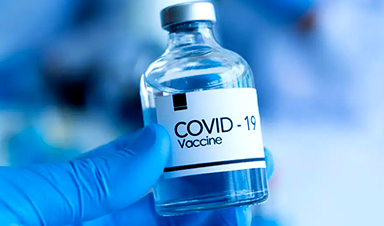Scientists identify key differences in immune responses to the AstraZeneca and Pfizer vaccines.
A recent study conducted by a team from SAHMRI and Flinders University in Australia has revealed significant variations in the way the AstraZeneca and Pfizer COVID-19 vaccines affect the immune system. The findings, published in Cell Reports Medicine, are part of the COVID-19 Vaccine Immune Responses Study (COVIRS) and were based on the analysis of the immune responses of 102 adults of various ages residing in South Australia, where there was no SARS-CoV-2 community transmission at the time of the study.
The participants in the study had their blood samples collected immediately after receiving each dose of either the Oxford/AstraZeneca or Pfizer/BioNTech COVID-19 vaccine, in order to evaluate their early immune response. Further tests were conducted 28 days after each immunization to measure the activity of B and T cells, both of which play a crucial role in the immune response. B cells produce antibodies, while T cells target and eliminate infected cells.
The vaccines are alike in the sense that they induce the immune system to recognize and protect against the SARS-CoV-2 virus, but they differ in how this is achieved. The Pfizer vaccine uses mRNA technology to induce host cells to produce the SARS-CoV-2 Spike protein, while the AstraZeneca vaccine uses a harmless virus (a chimpanzee adenovirus) to encode the Spike protein.
“After the first dose, we were surprised to find the Oxford/AstraZeneca vaccine elicits an unexpected memory-like response in the immune system, recognizing the vaccine as if it’s something it’s seen before,” says Professor Lynn, from the College of Medicine and Public Health at Flinders University.
“This response is targeted against the adenovirus vector in the vaccine, not the Spike protein and the intensity of this response correlates with the expression of proteins that act as a pre-cursor to thrombosis, or blood clotting. While Vaccine-induced immune thrombotic thrombocytopenia (VITT) is an extremely rare side effect associated with the Oxford/AstraZeneca vaccine that none of the participants developed during the study, this research offers a potential explanation for the connection between the Oxford/AstraZeneca vaccine and the cases of VITT that have been reported.”
The study also found those who’d only had two doses of the Oxford/AstraZeneca vaccine generally produced lower amounts of antibodies and less of a specialized type of T-cell that helps with antibody production; compared to those who had two doses of the Pfizer/BioNTech vaccine.
However, this was rectified once they had their third booster dose of an mRNA vaccine, illustrating the importance of booster doses. The study added evidence to the notion that COVID-19 vaccines offer some people more effective protection than others.
The reasons for this variability are not well understood, but Professor Lynn says age is a factor, with older people generally having a lower immune response after two doses. Fortunately, a third booster dose was highly effective at overcoming this. Immune responses induced immediately after vaccination predicted the subsequent B and T cell response to the vaccine measured a month later.
“One to two days after initial vaccination we measured gene expression responses in the blood which correlated with adaptive immune responses that mediate protection 28 days later,” Professor Lynn says.
A further surprise to researchers was the finding that feeling unwell after a vaccine dose may in fact be linked to its effectiveness.
“People who showed symptoms of fatigue and fever immediately after the third dose were more likely to have better T-cell responses. T-cells play a vital role in vaccine efficacy as they can directly kill viral cells,” Professor Lynn said.
Overall, this project has provided important new insights into the early immune responses to these vaccines and offers a greater understanding of how they work to protect against COVID-19.
News
Specially engineered antibody delivers RNA therapy to treatment-resistant tumors
Elias Quijano, PhD; Diana Martinez-Saucedo, PhD; Zaira Ianniello, PhD; and Natasha Pinto-Medici, PhD, there are 25 other contributors, most from Yale's Department of Therapeutic Radiology and from the departments of genetics, molecular biophysics and [...]
Vaccinated women face fewer cervical cancer risks
New data from Denmark shows the HPV vaccine’s powerful long-term impact, while also revealing why cervical cancer screening is still essential. A Danish study published in the journal Eurosurveillance reports that women who received the human [...]
3D-printed implant offers a potential new route to repair spinal cord injuries
A research team at RCSI University of Medicine and Health Sciences has developed a 3-D printed implant to deliver electrical stimulation to injured areas of the spinal cord, offering a potential new route to [...]
Nanocrystals Carrying Radioisotopes Offer New Hope for Cancer Treatment
The Science Scientists have developed tiny nanocrystal particles made up of isotopes of the elements lanthanum, vanadium, and oxygen for use in treating cancer. These crystals are smaller than many microbes and can carry isotopes of [...]
New Once-a-Week Shot Promises Life-Changing Relief for Parkinson’s Patients
A once-a-week shot from Australian scientists could spare people with Parkinson’s the grind of taking pills several times a day. The tiny, biodegradable gel sits under the skin and releases steady doses of two [...]
Weekly injectable drug offers hope for Parkinson’s patients
A new weekly injectable drug could transform the lives of more than eight million people living with Parkinson's disease, potentially replacing the need for multiple daily tablets. Scientists from the University of South Australia [...]
Most Plastic in the Ocean Is Invisible—And Deadly
Nanoplastics—particles smaller than a human hair—can pass through cell walls and enter the food web. New research suggest 27 million metric tons of nanoplastics are spread across just the top layer of the North [...]
Repurposed drugs could calm the immune system’s response to nanomedicine
An international study led by researchers at the University of Colorado Anschutz Medical Campus has identified a promising strategy to enhance the safety of nanomedicines, advanced therapies often used in cancer and vaccine treatments, [...]
Nano-Enhanced Hydrogel Strategies for Cartilage Repair
A recent article in Engineering describes the development of a protein-based nanocomposite hydrogel designed to deliver two therapeutic agents—dexamethasone (Dex) and kartogenin (KGN)—to support cartilage repair. The hydrogel is engineered to modulate immune responses and promote [...]
New Cancer Drug Blocks Tumors Without Debilitating Side Effects
A new drug targets RAS-PI3Kα pathways without harmful side effects. It was developed using high-performance computing and AI. A new cancer drug candidate, developed through a collaboration between Lawrence Livermore National Laboratory (LLNL), BridgeBio Oncology [...]
Scientists Are Pretty Close to Replicating the First Thing That Ever Lived
For 400 million years, a leading hypothesis claims, Earth was an “RNA World,” meaning that life must’ve first replicated from RNA before the arrival of proteins and DNA. Unfortunately, scientists have failed to find [...]
Why ‘Peniaphobia’ Is Exploding Among Young People (And Why We Should Be Concerned)
An insidious illness is taking hold among a growing proportion of young people. Little known to the general public, peniaphobia—the fear of becoming poor—is gaining ground among teens and young adults. Discover the causes [...]
Team finds flawed data in recent study relevant to coronavirus antiviral development
The COVID pandemic illustrated how urgently we need antiviral medications capable of treating coronavirus infections. To aid this effort, researchers quickly homed in on part of SARS-CoV-2's molecular structure known as the NiRAN domain—an [...]
Drug-Coated Neural Implants Reduce Immune Rejection
Summary: A new study shows that coating neural prosthetic implants with the anti-inflammatory drug dexamethasone helps reduce the body’s immune response and scar tissue formation. This strategy enhances the long-term performance and stability of electrodes [...]
Scientists discover cancer-fighting bacteria that ‘soak up’ forever chemicals in the body
A family of healthy bacteria may help 'soak up' toxic forever chemicals in the body, warding off their cancerous effects. Forever chemicals, also known as PFAS (per- and polyfluoroalkyl substances), are toxic chemicals that [...]
Johns Hopkins Researchers Uncover a New Way To Kill Cancer Cells
A new study reveals that blocking ribosomal RNA production rewires cancer cell behavior and could help treat genetically unstable tumors. Researchers at the Johns Hopkins Kimmel Cancer Center and the Department of Radiation Oncology and Molecular [...]





















